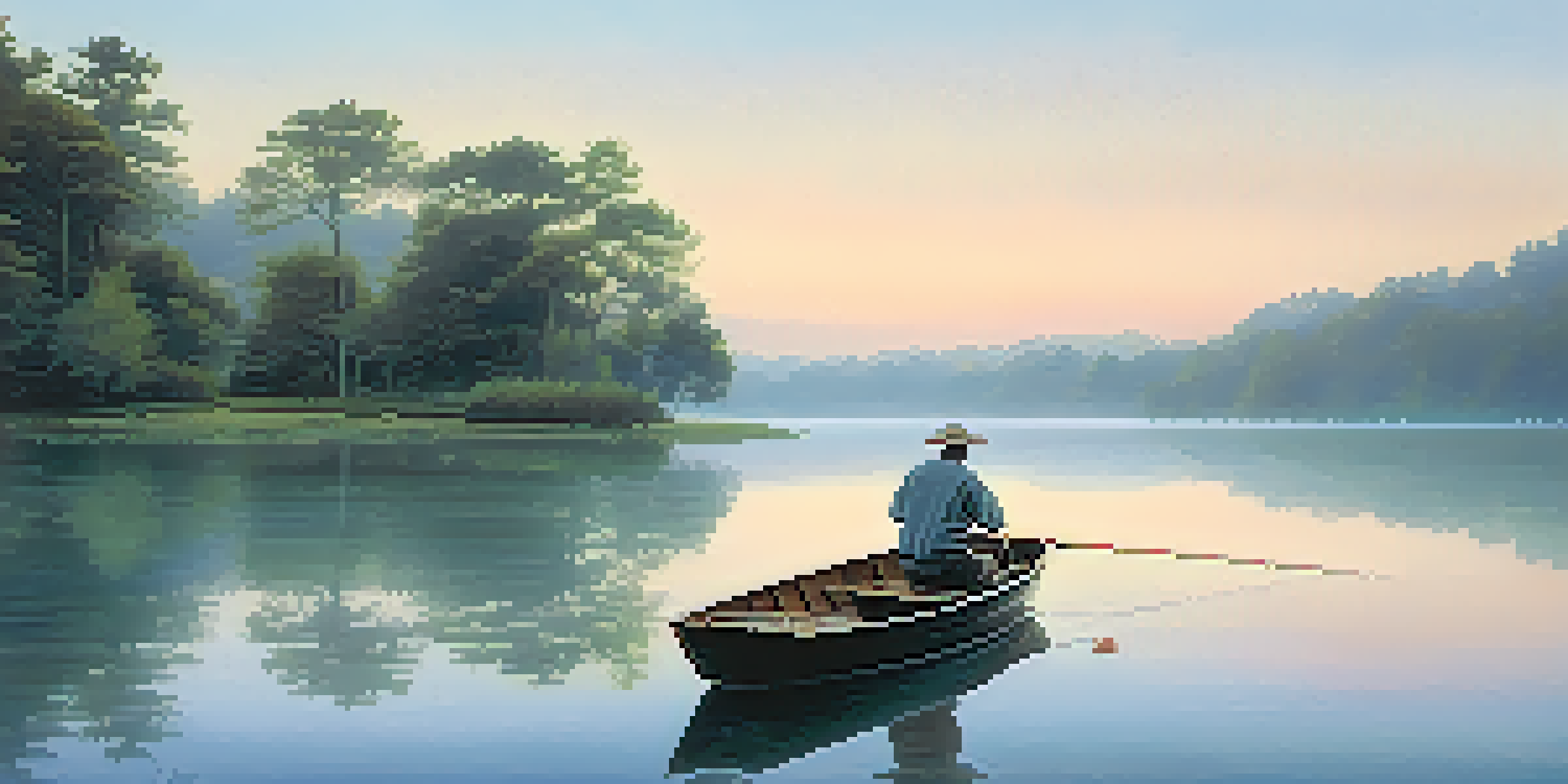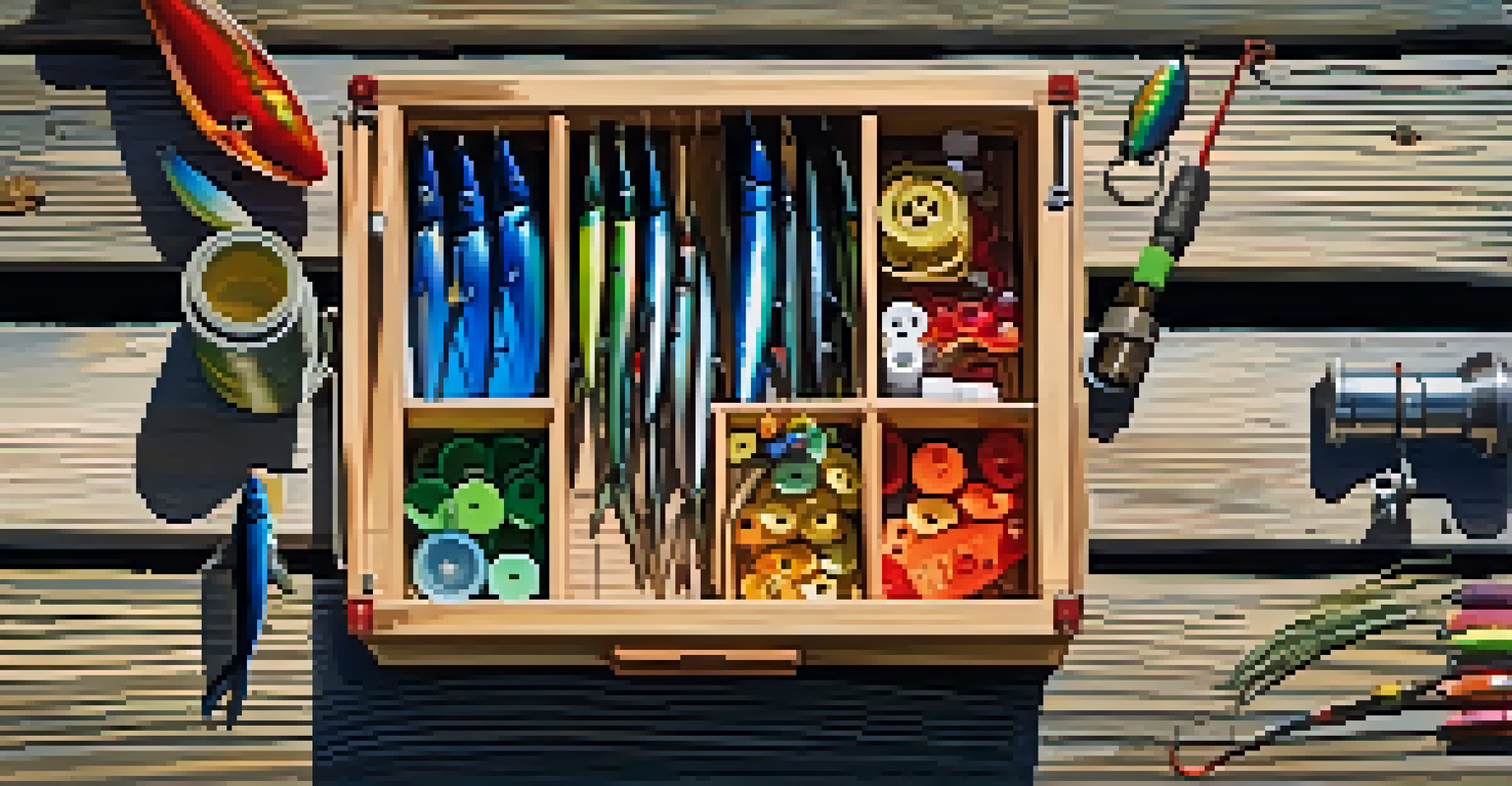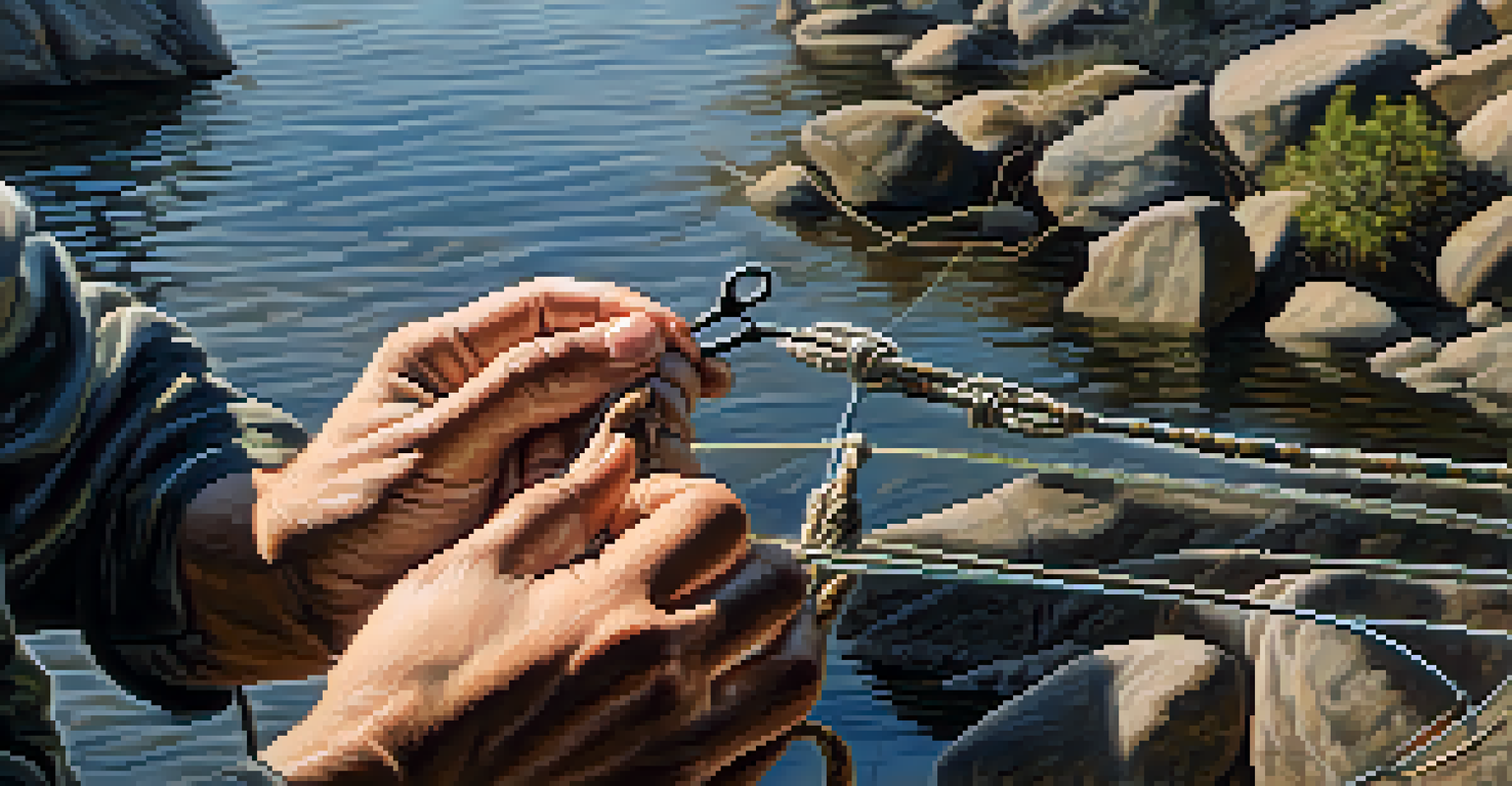Essential Fishing Techniques for Beginners to Catch Fish

Understanding the Basics of Fishing Gear
Before you cast your line, it's crucial to familiarize yourself with the basic fishing gear. A fishing rod, reel, line, hooks, and bait are essential components that will help you catch fish. Think of your fishing rod as your fishing arm, and the reel as the muscle that retrieves your catch.
Fishing provides time to think, and reason not to think.
Choosing the right gear can feel overwhelming at first, but don’t worry! Start with a spinning rod and reel combo, which is user-friendly and versatile for various fishing environments. This combination is like having a Swiss Army knife for fishing - it can handle many situations.
Lastly, don’t forget about safety gear such as a life jacket and sunscreen. Just as a chef wouldn’t cook without their tools, you shouldn’t fish without the essentials to keep yourself safe and comfortable.
Selecting the Right Fishing Spot
Finding the perfect fishing spot can be the difference between going home empty-handed and reeling in a big one. Look for areas where fish are likely to gather, such as near rocks, logs, or underwater vegetation. These spots serve as natural habitats, much like a cozy home for fish.

Local lakes, rivers, or ponds can offer great opportunities for beginners. Don’t hesitate to ask local anglers or visit fishing forums for recommendations. It’s like getting insider tips from experienced chefs when you’re learning to cook.
Essential Fishing Gear Basics
Familiarizing yourself with basic fishing gear, such as rods, reels, and safety equipment, is crucial for a successful fishing experience.
Remember that different types of fish prefer different habitats, so do a bit of research on the species you're targeting. Once you find a promising spot, patience is key – sometimes, it takes a little time for the fish to come around.
Learning the Art of Casting
Casting is a fundamental skill every angler must master. Start with a simple overhead cast: hold the rod at a 45-degree angle, bring it back over your shoulder, and then flick it forward while releasing the line. Think of it as throwing a ball; the smoother your motion, the better your chances of a successful cast.
Many men go fishing all of their lives without knowing that it is not fish they are after.
Practice makes perfect! Spend some time in your backyard or a local park before hitting the water. This way, you’ll build muscle memory, and casting will feel as natural as tossing a frisbee.
Once you’re comfortable, experiment with different casting techniques. Side-arm casting or roll casting can be useful in tight spots, just like knowing different techniques in sports can help you adapt to various situations.
Choosing the Right Bait and Lures
One of the most critical aspects of fishing is selecting the right bait or lure. Live bait, such as worms or minnows, can be very effective as they mimic the natural food fish seek. Think of it as serving a delicious meal to entice guests – the more appealing, the better!
Artificial lures come in various shapes, sizes, and colors, designed to attract different species of fish. Experiment with a few options to see what works best in your chosen spot. It’s a bit like trying out different recipes until you find that one that becomes a favorite.
Finding the Right Fishing Spot
Choosing the right location, like areas near rocks or vegetation, can significantly increase your chances of catching fish.
Remember, the right bait can depend on the time of year and the type of fish you’re targeting. Don’t hesitate to consult local bait shops for tips on what’s currently working.
Understanding Fishing Regulations and Ethics
Before you start fishing, it’s essential to understand local regulations. Many areas have rules about catch limits, sizes, and specific fishing seasons to protect fish populations. Following these regulations is like adhering to the rules of a game – it keeps things fair and enjoyable for everyone.
Practicing ethical fishing means respecting the environment and the fish. If you're practicing catch and release, handle the fish carefully and return it to the water quickly. Think of it as returning a borrowed book – you want to make sure it’s in good condition for the next reader.
Educating yourself about these practices helps preserve fishing for future generations. Just as we pass down family recipes, you want to ensure that fishing remains a cherished activity for years to come.
Mastering the Fish-Finding Techniques
To increase your chances of catching fish, learning to read the water is important. Look for signs of fish activity, like jumping fish or ripples on the surface. This is similar to spotting clues in a treasure hunt – the more you observe, the better your chances of success.
Using fish finders can also be beneficial for beginners. These devices use sonar to locate fish underwater, giving you a clearer picture of what’s happening below the surface. It’s like having a map in an unfamiliar area – it can guide you to your destination more easily.
Patience is Key in Fishing
Fishing requires patience and persistence, as success often comes after time spent observing and adjusting your techniques.
Combining your observations with technology can elevate your fishing game. As you gain experience, you’ll develop a sixth sense for where fish are hiding, akin to how a seasoned chef knows just the right spice to enhance a dish.
Practicing Patience and Persistence in Fishing
Fishing is as much about patience as it is about technique. It may take time to hook your first fish, and that’s perfectly okay. Think of it like waiting for a slow-cooked meal; good things come to those who wait!
Stay focused and adjust your techniques as needed. If you’re not having luck in one spot, don’t hesitate to move around. It’s like trying different routes when you’re lost – sometimes, a change in direction can lead to unexpected discoveries.

Remember, every fishing trip is a learning opportunity. Even if you don’t catch anything, you’ll gain valuable experience and enjoy the tranquility of being outdoors, which is just as rewarding.